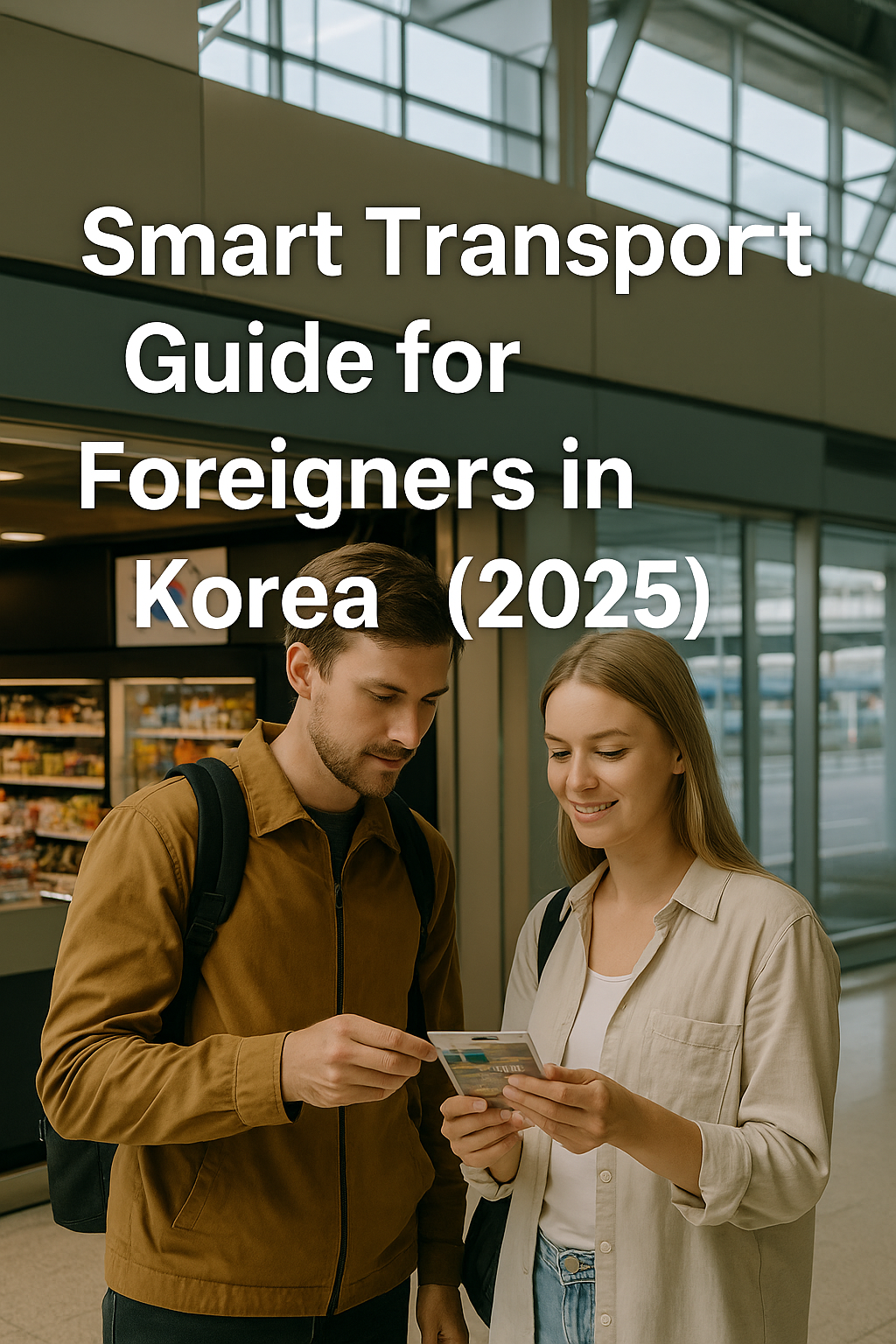The Top 3 Real Questions Everyone Asks – With Actionable Solutions
Introduction:
If you’re a foreigner who just landed in Korea – whether for travel, work, or long-term stay – you’re probably overwhelmed by a dozen questions. From opening a bank account to finding a place to sleep, many newcomers hit the same roadblocks.
This guide answers the three most common, most urgent questions foreigners ask in Korea – with real-life solutions you can use immediately. Whether you’re here for a week or a year, these answers will save you time, money, and stress.
1. How do I open a bank account in Korea as a foreigner?
Opening a bank account in Korea is entirely possible – even without fluent Korean. However, it depends on your visa type, location, and whether you have an Alien Registration Card (ARC). Here’s a comprehensive breakdown:
Standard Requirements:
- Passport
- Alien Registration Card (ARC)
- Korean phone number (Required for mobile banking and identity verification)
No ARC yet? No problem (in some cases)
Some banks, especially near expat-heavy areas (like Itaewon or Gangnam), allow you to open a limited account with only your passport and visa.
Top Banks for Foreigners:
| Bank | Pros | Notes |
|---|---|---|
| Woori Bank | English support desks at select branches | Available near universities and Seoul Global Centers |
| Hana Bank (Global Center) | Specialized expat services | Supports multi-language online banking |
| Kookmin Bank (KB) | Accepts ARC + Passport, decent mobile app | Some staff speak English |
Mobile Banking Apps to Use After Account Setup:
- Toss: Korea’s most popular fintech app; easy transfers and English UI
- KakaoBank: Great interface, but requires a Korean ID (ARC usually needed)
Processing Time:
- Account creation: 30 minutes to 1 hour
- Debit card issuance: Often instant, sometimes mailed within 1–2 days
Smart Tips:
- Ask for an account with no ATM withdrawal fees (within bank’s ATMs)
- Enable international transactions if you plan to send/receive money from abroad
- Use the bank’s global centers for smoother service (often near city centers)
2. What’s the easiest way to find a short-term place to stay in Korea?
Foreigners in Korea often need a temporary place while they search for long-term housing, complete quarantine, or simply travel. The good news? Korea offers multiple short-term housing options for every budget.
Popular Options Compared:
| Type | Cost Range (Monthly) | Pros | Cons |
|---|---|---|---|
| Goshiwon | 100,000 – 300,000 KRW | Super cheap, no deposit, instant move-in | Tiny space, little privacy |
| One-Room Apartment | 500,000 – 1,000,000 KRW | More privacy, basic kitchen | May require Korean contract and 1-year term |
| Airbnb (Monthly) | 1,000,000+ KRW | Fully furnished, English-friendly | Expensive in city centers |
How to Book:
- Zigbang (app): Large variety of listings, filter by region and price
- Dabang (app): English-friendly layout and responsive landlords
- Airbnb: Best for those without Korean language skills
Special Tips for Foreigners:
- If you’re not comfortable with Korean, go with Airbnb or find realtors near expat neighborhoods
- Always check if utilities are included in the rent
- For goshiwons, use websites like goshipages.com or visit in person
Required Documents (for non-Airbnb options):
- Passport or ARC
- Local phone number (optional but helpful)
- Cash for deposit (often 1–2 months’ rent)
3. Can I use my foreign credit card everywhere in Korea?
Mostly yes – but with limitations. Large chains and most stores in urban areas accept Visa or Mastercard, but you should be prepared for some places to only accept local cards.
Where It Might NOT Work:
- Mom-and-pop restaurants
- Traditional markets
- Taxis (especially older ones)
- Korean online stores (like Coupang or Gmarket) without Korean cards
Best Practices:
- Use Visa or Mastercard for broader acceptance
- Avoid Amex, which has limited support in Korea
- Carry at least 50,000 KRW in cash for small merchants or emergencies
Best Global Cards for Korea (2025):
| Card | Pros | Notes |
|---|---|---|
| Wise (Multi-currency) | Low fees, KRW support, mobile control | Accepted in most card terminals |
| Revolut | Live FX rates, budgeting tools | Works well for online payments too |
| YouTrip / N26 (Asia/Europe) | Good in other countries, not all Korean ATMs | Backup only |
Real-Life Case:
Sarah, a student from Canada, used her Scotiabank Visa for 2 weeks in Seoul. She noticed her card failed at small cafes, but worked fine at convenience stores and malls. After switching to a local Woori debit card, her life became much easier — including using KakaoPay.
Final Checklist Before You Arrive (or While in Korea):
- Set up mobile banking with English support (Toss, KakaoBank)
- Bookmark housing apps: Zigbang, Dabang, Airbnb
- Carry both cash and Visa/Mastercard
- Choose a bank branch near a global center (e.g., Seoul Station, Gangnam)
- Register for ARC as soon as possible if staying long-term
Conclusion:
Navigating Korea doesn’t have to be difficult. Once you handle banking, housing, and payments, everything else gets smoother. Use this guide as your launchpad, and come back often — we update regularly with the newest hacks for global living in Korea.
Stay smart, stay global.
